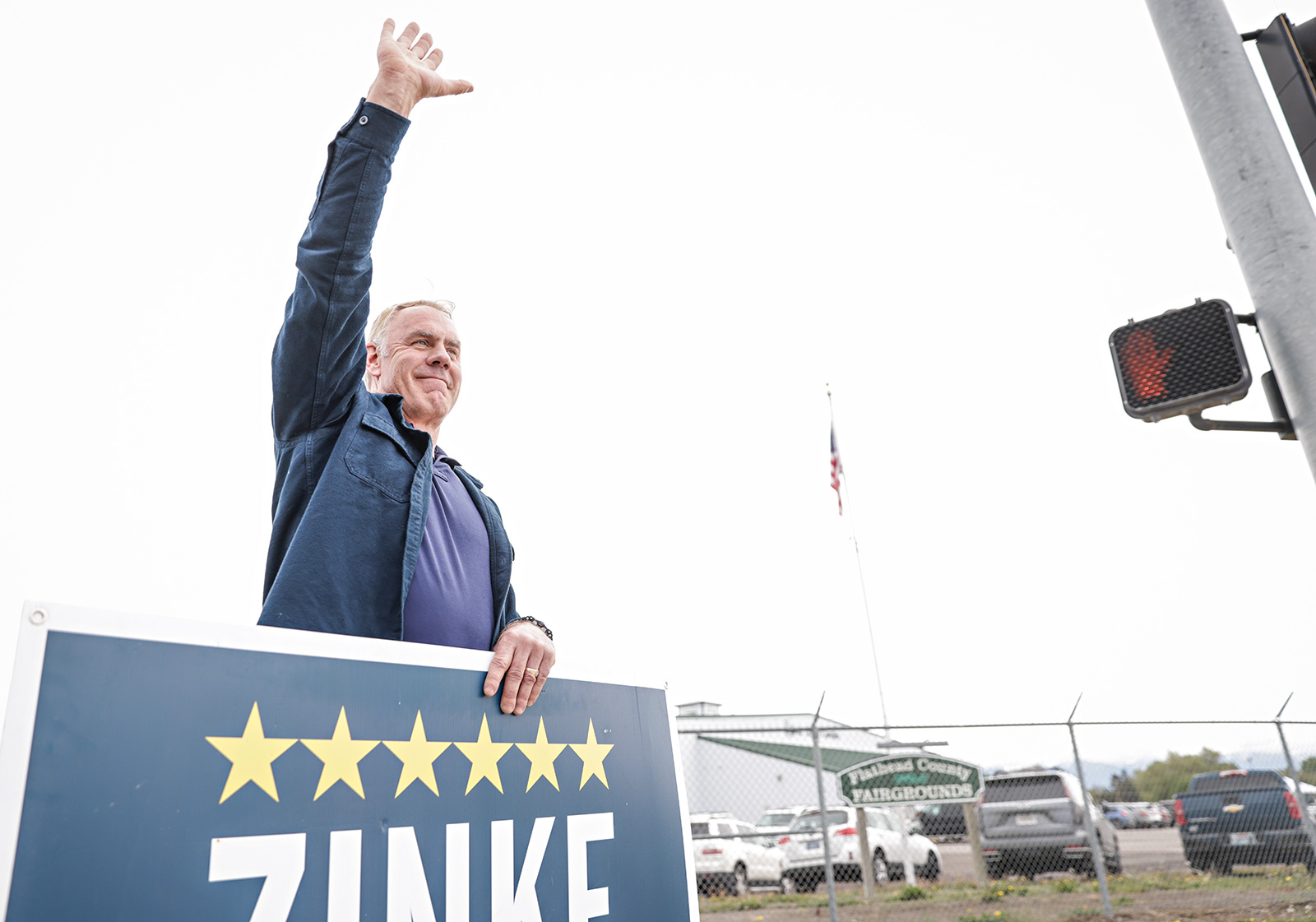Watchdog: Ex-Interior Head Zinke Lied During Casino Probe
Zinke, now the Republican nominee for a new House seat in western Montana, made statements to investigators 'with the overall intent to mislead them'
By MATTHEW DALY
WASHINGTON — Former Interior secretary Ryan Zinke lied to investigators about conversations he had with lobbyists, lawmakers and other officials regarding a bid by two Indian tribes to operate a casino in Connecticut, the department’s internal watchdog said Wednesday.
Zinke, now the Republican nominee for a new House seat in western Montana, made statements to investigators “with the overall intent to mislead them,” a report by Inspector General Mark Greenblatt said.
Both Zinke and his former chief of staff, Scott Hommel, “presented an inaccurate version of the circumstances in which (Interior) made key decisions” on the casino project, the report said. “As a result, we concluded that Secretary Zinke and (Hommel) did not comply with their duty of candor when questioned.”
Zinke’s campaign could not immediately be reached for comment. But a letter from Zinke’s attorney, included in the report, said the finding that Zinke lacked candor was “wrong and without merit.”
In comments to investigators, Zinke called the report’s timing — less than three months before the November election — “disturbing and improper.” He asked that the report’s release be delayed until after the election, a request Greenblatt denied.
In an Aug. 3 letter from the law firm Schertler, Onorato, Mead & Sears, Zinke’s attorney called the IG’s report “distorted and misleading” and said it “fails to clarify that Secretary Zinke did no adopt the position of any lobbyist for or against the (casino) project.” The lawyer’s name is redacted in the IG report.
Zinke was accused of acting improperly on a request by the Mashantucket Pequot and Mohegan tribes in Connecticut to open a casino on non-tribal land in East Windsor, Connecticut. The request required federal approval. The proposed site was close to a casino planned by Las Vegas-based MGM Resorts in nearby Springfield, Massachusetts. The MGM casino opened in 2018.
Zinke did not approve or reject the tribes’ request, instead sending it back to the tribes in September 2017.
The lack of action led to a federal ethics investigation, one of several against Zinke, who served as Interior secretary from March 2017 to January 2019. The state of Connecticut and the tribes also filed a lawsuit in 2017, alleging that improper and undue political influence, including from MGM, was behind the decision not to sign off on the agreements.
Among those Zinke talked to during his deliberations was then-Sen. Dean Heller, R-Nevada, who told investigators he asked Zinke not to approve the tribes’ request. Heller said he believed Zinke lacked authority over the project because gaming would not occur on tribal lands. He also said representatives of MGM explained to him how approval of the request would allow the tribes to open a casino only 13 miles away from — and in direct competition with — the Springfield site.
Both Zinke and MGM have denied any wrongdoing. In a 2019 interview with The Associated Press, Zinke also denied reports that he may have lied to Interior’s inspector general, saying he was asked twice about the casino decision and was truthful both times.
The inspector general’s office ultimately shifted its focus from the casino decision to whether Zinke and Hommel, his chief of staff, were truthful in their statements.
The Connecticut tribes ultimately decided to set aside plans for the jointly owned casino, citing the need to focus on their two existing casinos that have been hit hard by the coronavirus pandemic.